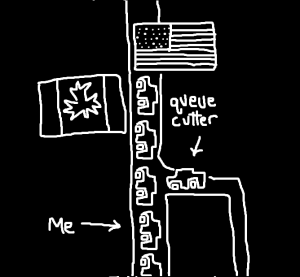
Wokandapix / Pixabay
Apparently not.
Riley Stratton from Minnesota won her lawsuit against her school claiming that they violated her constitutional rights of free speech and privacy.
She had been forced to reveal her Facebook password to her school.
When she was 12 she typed some things on Facebook expressing her dislike/hatred for a hall monitor named Kathy. A few days later the school received a complaint that she was talking about sex with a boy. Consequently, she was asked by the school for her password, which she surrendered because she feared detention. Apparently, the school officials searched her Facebook account. Importantly, she did not use a school computer. Her parents weren’t consulted.
She sued the school and won a $70,000 settlement.
Does the School have the Right?
It boils down to the question: Does the school have any right to discipline a student for something they do outside of school?
On the one hand, students ought to enjoy the freedom of speech and privacy that we enjoy as adults.
Schools are tasked to “educate” whole persons.
Although we talk about various aspects of the students, schools must deal with and educate whole persons.
- Some schools have breakfast programs because students can’t learn when they are hungry.
- Schools have counselors to help students deal with a wide variety of issues. Everything from the loss of a loved one the death of a family pet, from relationships with friends to bullying.
- Schools are very concerned, not just with a student bringing drugs to school, but in using drugs at all.
- Some schools exist just because they recognize the importance of spirituality in the life of all people.
- Family income, cultural or religious heritage, level of parents education, etc. are all part of who the student is as a whole person.
Is there a distinction between life-at-shool and life-at-home?
In some sense there is a difference between life-at-school and life-not-at-school, so we often make that distinction, but the distinction isn’t always realistic.
The school has to nurture, educate, stimulate, and, yes, discipline, whole persons. Parents, school, church (if applicable), community, etc. are all interested in the flourishing of each individual student. Each deals with the individual as a whole entity, albeit with different aspects.
Therefore, it is conceivable that the school would, for her sake, be interested in the ways that Riley is using her Facebook account. The integrated whole, that is Riley, might have been best served by being forced her to surrender her password and helped, with the involvement of her parents, to understand her responsibilities to others and appropriate boundaries regarding talking with boys about sex online.
Riley says she no longer trusts adults.
I’m sure she no longer trusts them, but this is not necessarily the bad thing she thinks it is. She does not trust them to not invade her privacy, but this is not the same thing as not trusting them to look out for her best interests?
Riley has learned a lot through this experience, I am sure, but I worry that with this precedent students will learn a lot more about their personal rights and freedoms, and very little about their responsibility for how they treat others and how they use the powerful tools of social media.
It’s not a simple issue. What do you think?



